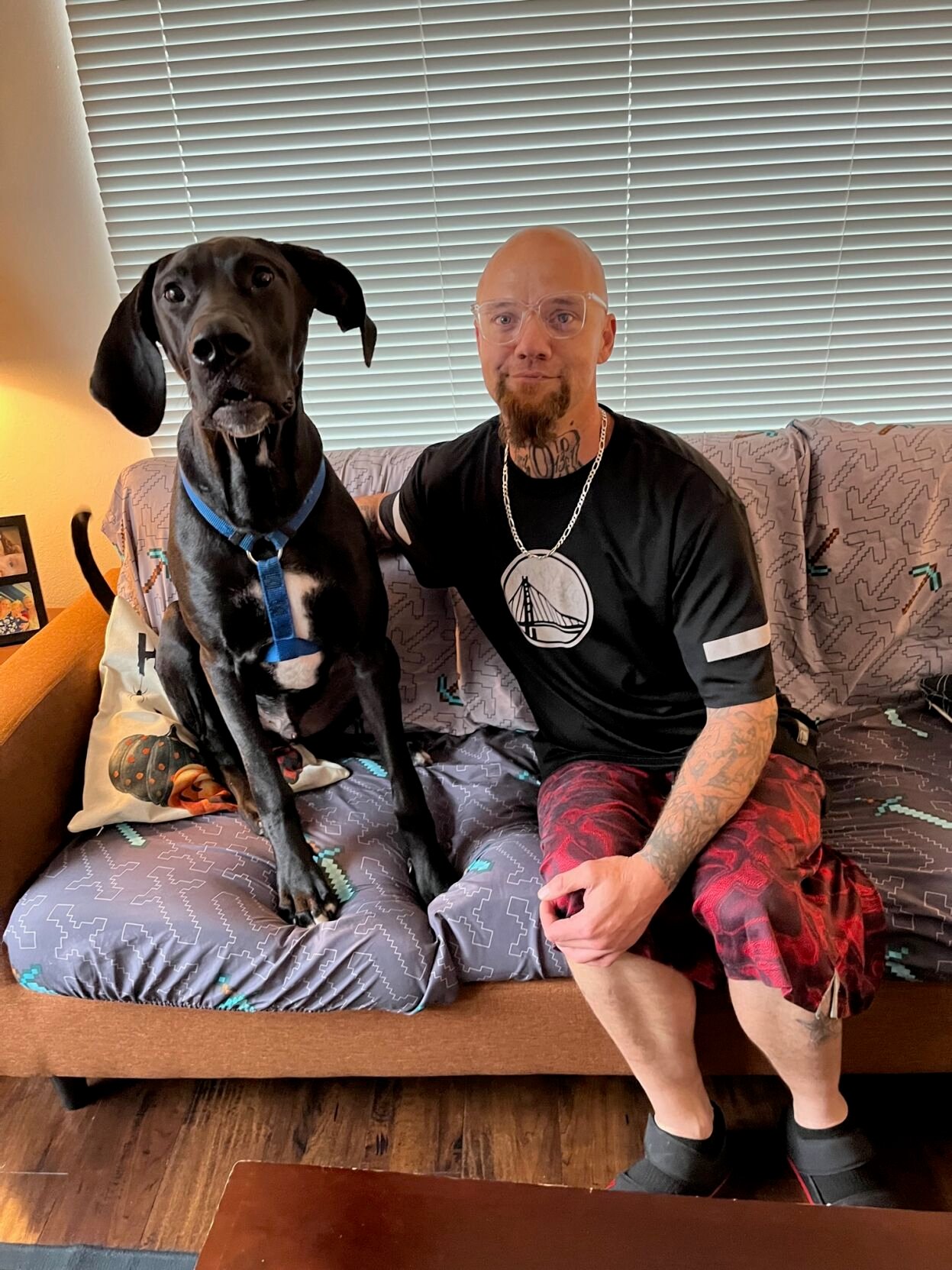THE DALLES — Growing up, Matt Cobos’s parents were both alcoholics and his dad was in and out of prison. Cobos went on to repeat the cycle of addiction and prison. He doesn’t want that for his 4-year-old son.
Cobos, 46, is one of two residents in La Casa Vida in The Dalles, one of only a few residential programs in Oregon for single fathers in recovery who are seeking or have custody of their children (See related story.)
Cobos moved back to The Dalles recently against almost everyone’s advice. “I’m really well known in The Dalles,” he explained. “For bad things.”
He was a higher-level drug dealer here. “Everybody expected me to crumble when I got here and go back to what I was doing,” he said. “And I didn’t do that. I’m doing what I need to do.”
The residential program, jointly run by Bridges to Change and Mid-Columbia Center for Living (MCCFL), offers free housing and requires residents to participate in programming, pass regular drug tests, and keep their places clean.
Asked what motivated his change, he said, “My son. He doesn’t have a mother. It’s up to me to get him back and raise him right.”
His son is living with family in eastern Oregon, and he moved to The Dalles in March from a residential treatment program in Medford to be closer to him.
He credited La Casa Vida with giving him an opportunity to learn new skills and combat his addiction. “And the hardest part is the housing. So, I’m in a place I can save money, get the treatment I need, and still maintain my sobriety.”
He had kudos for MCCFL. “Center for Living is a steppingstone for getting back on track. I wouldn’t say that a couple years ago, but they’ve really ramped up their game. They’ve got peer support now. They’re really focused on helping the community.”
Cobos grew up in California and was visiting Oregon in 2000 when he stabbed someone and then spent six years in prison. By the time he got out, his family had moved to The Dalles, so he moved here.
He did two more stints in prison for drug dealing in The Dalles, from 2010 to 2012, and then from late 2015 to 2017. He credited his recent Medford treatment program for teaching him “how we act out later in life through the trauma we had as a child.”
His own son has already known trauma, since he was in the room for six hours with his mother after she fatally overdosed when he was 18 months old, Cobos said.
After she died, Cobos had his son for six months but then relapsed himself. He’s been sober for a little over a year. He’d used heroin and methamphetamines.
Cobos learned to cook in prison and has turned it into his profession. One of his two part-time jobs is as a restaurant cook.
He likes earning a legitimate paycheck. “I earned it the right way. I’m paying my child support. All those things feel good, man.”
But his ultimate goal is to become a peer support person, someone with lived experience who helps others in recovery.
“Helping others helps me in my recovery,” he said. “I like to see the ah-ha moment in people’s eyes when they say, ‘How do you do that?’”
He said, “If you know the person you’re talking to has been there, you’re going to open up more. You’re going to be vulnerable. And some people need that, to process that and open the door and maybe feel, ‘Hey, I’m not alone.’”
Cobos has three grown daughters in California, two of whom he didn’t have a relationship with until their recent visit to see him at La Casa Vida. “I haven’t talked to them in 20 years and now that I’m sober, they see that, and it’s awesome. It’s awesome. I definitely wept.”
He is in several treatment programs, including a DUI class and a domestic violence class. He said his domestic violence charge is tied to his addiction. “When I’m sober, I’m not the same person.”
He will be starting a parenting class soon through MCCFL.
He is on medication to help him maintain his sobriety, and he said he has no desire whatsoever to use. He also has skills he learned in treatment in Medford, such as breathing exercises, playing a mental tape where you envision where you will end up if you use again, and gratitude journaling.
His biggest challenge now is being patient with the process to reunite with his son, with whom he has video visits twice a month. His goal is to be fully reunited with his son in a couple years.
“I know I’m playing the long game to get him back; I just want to be a better me to get him back.”






















Commented